Featured
 Is America Headed for Another Civil War? By Jane Coaston / NYT Podcast
Is America Headed for Another Civil War? By Jane Coaston / NYT Podcast
Jamelle Bouie and Tim Alberta on whether America’s polarization is at a tipping point.
America is divided and battling many different internal “wars” — over politics, culture, language, religion. Is it possible all this internal division could culminate in a civil war? Today’s episode of “The Argument” brings together Jamelle Bouie and Tim Alberta to assess. Bouie is a Times Opinion columnist and historian of America’s Civil War. Alberta is a staff writer at The Atlantic and made the case that the F.B.I. Mar-a-Lago search is the tipping point for political violence that could put our democracy at stake. Read and Listen here
Related: America’s problem is White people keep backing the Republican Party. By Perry Bacon Jr. / Wash Post
Political / Social
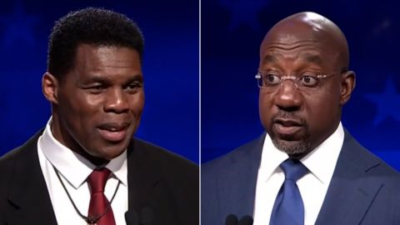 Five takeaways from the Georgia Senate debate. By Dan Merica and Gregory Kreig / CNN
Five takeaways from the Georgia Senate debate. By Dan Merica and Gregory Kreig / CNN
When Democratic Sen. Raphael Warnock and Republican Herschel Walker met to debate in the already contentious Georgia Senate race, all the focus was on how personal allegations against Walker would roil the first – and likely only – debate in the campaign. Walker continued to deny allegations that he paid for a woman to terminate her pregnancy and then, two years later, encouraged the same woman to have the procedure a second time, calling them “a lie.” That, however, was just a blip in the hour-long contest, which instead centered on Warnock’s ties to President Joe Biden, the vast differences between the two candidates on abortion and even, however briefly, Walker’s use of what appeared to be a sheriff’s badge. Here are five takeaways from Friday’s debate: Read more
Related: Hershel Walker Perfectly Embodies the GOP. By Peter Wehner / The Atlantic
Related: They finally debated: Warnock talked policy. Walker pulled out a prop sheriff’s badge. By Rebekah Sager / Daily Kos
Related: Herschel Walker, Butcher of Language. By Charles M. Blow / NYT
 A Revealing Racist Rant in L.A. By Charles M. Blow / NYT
A Revealing Racist Rant in L.A. By Charles M. Blow / NYT
I have a theory about the future of America that I don’t want to come true.
It is a theory that worries me and that I have written about: that with the browning of America, white supremacy could simply be replaced by — or buffeted by — a form of “lite” supremacy, in which fairer-skin people perpetuate a modified anti-Blackness rather than eliminating it. The racist comments revealed this week on a recording of Latino leaders in Los Angeles — three City Council members and a labor union leader — did nothing to allay those fears. Read more
Related: This Is What Happens When Race Is Everything. David Brooks / NYT
Related: Echoes of Latin American Racism Reverberate in the U.S. By Miriam Jordan / NYT
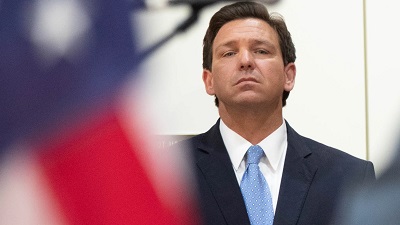 How DeSantis Remade Florida’s Congressional Districts. By Joshua Kaplan / Propublica
How DeSantis Remade Florida’s Congressional Districts. By Joshua Kaplan / Propublica
DeSantis’ move, secretly aided by GOP-linked national operatives, came over the objections of the Republican-controlled state legislature.
Florida Gov. Ron DeSantis was incensed. Late last year, the state’s Republican legislature had drawn congressional maps that largely kept districts intact, leaving the GOP with only a modest electoral advantage. DeSantis threw out the legislature’s work and redrew Florida’s congressional districts, making them far more favorable to Republicans. The plan was so aggressive that the Republican-controlled legislature balked and fought DeSantis for months. The governor overruled lawmakers and pushed his map through. Read more
Related: How DeSantis and Florida Republicans are reshaping higher education. By Andrew Atterbury / Politico
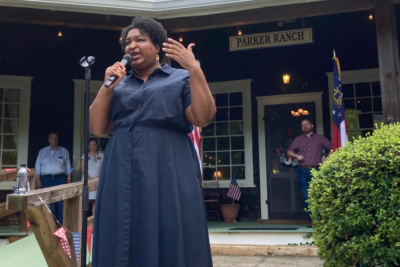 Georgia midterms: Black men could be the key to Stacey Abrams’ win. By Mabinty Quarshie and Phillip M. Bailey / USA Today
Georgia midterms: Black men could be the key to Stacey Abrams’ win. By Mabinty Quarshie and Phillip M. Bailey / USA Today
If Stacey Abrams hopes to prevail in her much-anticipated rematch against Republican Gov. Brian Kemp, she’ll need Black voters, especially Black men, to vote at record levels again.
Abrams has trailed Republican Gov. Brian Kemp for much of the 2022 campaign. If she hopes to prevail in her much-anticipated rematch, she’ll need to improve upon the coalition of first-time voters, young voters and Black voters, who helped her come within 1.4% of winning the governor’s race last time. So far, though, not only has she not gained ground among Black voters, she’s significantly behind where she was in 2018. Read more
Related: Black men are not the problem for Stacey Abrams and Democrats. By Ricky L. Jones / USA Today
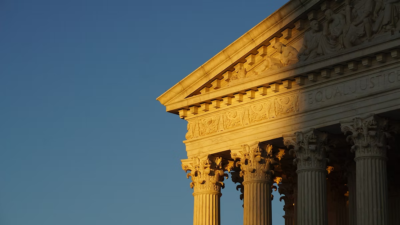 Civil Rights Lawyers: Future of Affirmative Action is in Question. By Liann Herder / Diverse Issues in Higher Ed.
Civil Rights Lawyers: Future of Affirmative Action is in Question. By Liann Herder / Diverse Issues in Higher Ed.
Race-based admissions practices do not allow admission to students solely based on their race. Rather, the policies allow the consideration of race as one aspect of a student along with the rest of their portfolio, including grades, test scores, or even admissions essays. Shaw and other lawyers at the American Association for Access, Equity, and Diversity’s (AAAED’s) 48th annual national conference said they feel the Supreme Court is likely to rule in favor of SFFA due to its present conservative sway. Read more
 It’s taking more time to cast a ballot in US elections – and even longer for Black and Hispanic voters. By Jonathan Coopersmith / The Conversation
It’s taking more time to cast a ballot in US elections – and even longer for Black and Hispanic voters. By Jonathan Coopersmith / The Conversation
The 2020 elections also saw record numbers of Americans forced to wait longer to vote, partly because of the increased number of voters and the difficulties of safely voting during a lethal pandemic. Tellingly, as in the past, if you waited over 30 minutes to cast a vote, you were more likely to be a low-income Black American. Average waits nationally increased to 14.3 minutes in 2020 from 10.4 minutes in 2016, a 40% jump. These waits were concentrated in poorer neighborhoods with a higher percentage of nonwhite voters. Read more
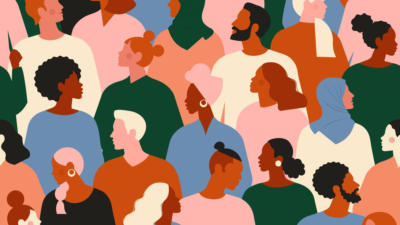 Workplace Anti-Bias Trainings Aren’t Enough. By Insiya Hussain / The Progressive
Workplace Anti-Bias Trainings Aren’t Enough. By Insiya Hussain / The Progressive
While DEI training can positively impact attitudes towards underrepresented groups, they do little to change behavior.
In September, when a federal judge partially blocked Florida’s “Stop Woke Act,” which would have banned workplaces from holding mandatory trainings on race- or sex-based discrimination, it was considered a victory for diversity, equity and inclusion, or DEI, programs. But this ignores the fact that DEI training, since it began in the 1960s, has fallen far short of its goals. Read more
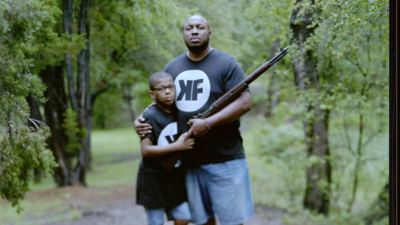 These are the faces of the rising number of Black gun owners in the U.S. By Christian K. Lee and Ciera Crawford / NPR
These are the faces of the rising number of Black gun owners in the U.S. By Christian K. Lee and Ciera Crawford / NPR
Aaron Banks, 38, and his son Aaron Banks, Jr., 8, embrace at a local park on Saturday, May 22, 2021, in Cedar Park, Texas. “The image of the average gun enthusiast needs an update,” the elder Banks said. Banks is president of Keep Firing LLC and one of 24 pistol instructors certified by the National African American Gun Association.
Black gun ownership in America dates back to before the country’s founding. Firearms helped aid Nat Turner’s rebellion against white enslavers. Harriet Tubman famously carried her pistol along the Underground Railroad. Civil rights leaders felt it was necessary to arm themselves against potential racial violence: from journalist Ida B. Wells insisting that every Black home be equipped with a Winchester rifle … to Martin Luther King, Jr. trying to obtain a concealed carry license. And in recent years, more Black Americans are buying guns. Read more
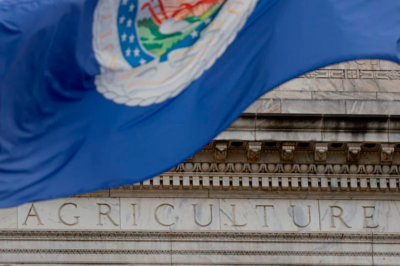 Farmers who faced discrimination are eligible for $2.2 billion from the USDA. By Ximena Bustillo / NPR
Farmers who faced discrimination are eligible for $2.2 billion from the USDA. By Ximena Bustillo / NPR
The Agriculture Department on Thursday announced it is beginning the process of creating a program that will ultimately dole out $2.2 billion to farmers who have faced discrimination from the agency in the past.
Beginning Friday, the department is seeking public comment on how it should design, implement and administer the program. The department was directed by Congress in the recently passed Democratic reconciliation bill to create a brand new program to give out the money. It was also directed to select one or more third parties, or nongovernmental organizations, to carry out the program instead of USDA itself. A Democratic staffer familiar with the legislation said that was done to address farmers’ concerns of USDA bias in such a program. Read more
 He Marched At The Nazi Rally In Charlottesville. Then He Went Back To Being A Cop. Christopher Mathias / HuffPost
He Marched At The Nazi Rally In Charlottesville. Then He Went Back To Being A Cop. Christopher Mathias / HuffPost
An exclusive HuffPost report confirms that Massachusetts police officer John Donnelly played a key role in the violent Unite the Right rally five years ago.
A Massachusetts police officer attended the deadly “Unite the Right” rally in Charlottesville, Virginia, five years ago and acted in key security and planning roles, HuffPost has confirmed. He also used an alias to post racist and antisemitic comments online. The officer, John Donnelly, was still an active-duty member of the police force until Thursday, shortly after HuffPost inquired about his status with the department and role in the deadly white supremacist rally. Donnelly, 33, was a patrolman for the Woburn Police Department near Boston, where he has been employed since 2015. Read more
Ethics / Morality / Religion
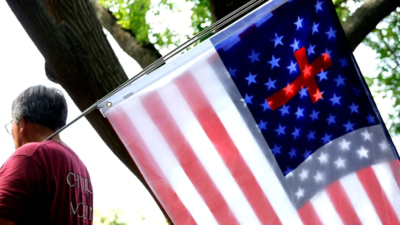 The dangerous paradox of the religious polarization of American politics. By Bill Schneider / The Hill
The dangerous paradox of the religious polarization of American politics. By Bill Schneider / The Hill
A key factor driving political polarization in the United States today is religion — not what religion you are, but how religious you are.
The Pew Research Center reports that “the country has been growing less religious over time,” evidenced by a decline in the share of the population identifying as “Christian” from about 90 percent in the early 1990s to a little over 60 percent in 2022, plus a growing number of Americans who claim no religious affiliation (those with “no religion,” atheists and agnostics now total about 30 percent). At the same time, Pew has examined the role of religion in the lives of people in dozens of countries all over the world. The key finding: “The wealthier a country is, the less religious its people tend to be — except America.” Read more
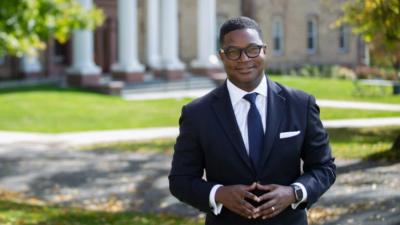 Scholar and preacher Jonathan Lee Walton named next president of Princeton Seminary. By Adelle M. Banks / RNS
Scholar and preacher Jonathan Lee Walton named next president of Princeton Seminary. By Adelle M. Banks / RNS
‘The church is changing. Society is changing. So we need clear-minded, faith-informed professionals who can speak hope, equity, and healing in all fields of human endeavor,’ he said.
he Rev. Jonathan Lee Walton, an academician, preacher and administrator who has served on the faculties of Wake Forest and Harvard divinity schools, has been named the next president of Princeton Theological Seminary. He will be the first Black president of the seminary, which was founded in 1812, and is to officially begin his new role on Jan. 1, 2023. Walton, 49, who has been dean of Wake Forest University’s School of Divinity in North Carolina and dean of its chapel since 2019, will succeed President M. Craig Barnes, who has led Princeton’s seminary since 2013. Read more
 Supreme deceit: How Sam Alito snuck medieval state Christianity into the Dobbs opinion. By David Boyle / Salon
Supreme deceit: How Sam Alito snuck medieval state Christianity into the Dobbs opinion. By David Boyle / Salon
Alito’s opinion overturning Roe is literally built on fake history — and a sneak attack on the First Amendment
Alito’s opinion sneaks in a 12th- century religious penalty for abortion — not a criminal statute — citing it in a section meant to support the history of criminal punishment, and with its ecclesiastical origins neatly excised. Those who are outraged by this are now free to mock Alito, unless they’d rather have him impeached — along with the whole Dobbs majority, perhaps — for deceiving America and violating the separation of church and state. Read more
 Herschel Walker and the Platform of Cheap Grace. By Bonnie Kristan / Christianity Today
Herschel Walker and the Platform of Cheap Grace. By Bonnie Kristan / Christianity Today
Christians believe in mercy amidst moral failing. But how then should we vote?
A recent campaign ad for Herschel Walker, the Republican Senate candidate in Georgia, is titled “Grace.” Democratic Sen. Raphael Warnock is “a preacher who doesn’t tell the truth. He doesn’t even believe in redemption,” Walker says about his opponent in the clip. “I’m Herschel Walker, saved by grace, and I approve this message.” The messaging, leaning on Christian language around forgiveness, is part of Walker’s campaign among Christian conservatives in Georgia. And it came two days after the former NFL and UGA football star dismissed a Daily Beast report that he urged a then-girlfriend to get an abortion after he impregnated her in 2009. Read more
Historical / Cultural
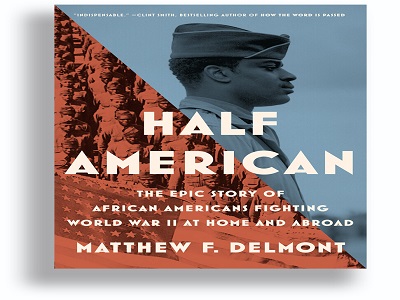 How World War II Looked to African Americans. By Jennifer Szalai / NYT
How World War II Looked to African Americans. By Jennifer Szalai / NYT
“Half American,” by the historian Matthew F. Delmont, provides a fresh account of the war, stressing the particular challenges — from segregation to racist violence — confronted by Black service members.
At the time, it should have been an easy argument to make: World War II was a total war, requiring an enormous mobilization of resources; therefore anything impeding the efficient deployment of American forces had to be renounced — including the military’s policy of segregation and, most glaringly, the brutal Jim Crow regime in the South. But as Matthew F. Delmont details in “Half American,” his new book about African Americans and World War II, even the bluntest appeals to the national interest couldn’t get some white Americans to budge. Read more
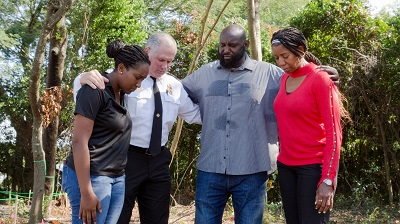 Nearly ‘Erased by History’: African Americans Search for Lost Graves.
Nearly ‘Erased by History’: African Americans Search for Lost Graves.
Credit…Al J. Thompson for The New York Times
For many African Americans, the search for family ties can begin and end with segregated cemeteries and burial grounds that have long faded from public memory. But as a growing wave of descendants trace their roots to build fuller origin stories, they are discovering and restoring old cemeteries and erecting memorial markers for long-lost burial sites. Read more
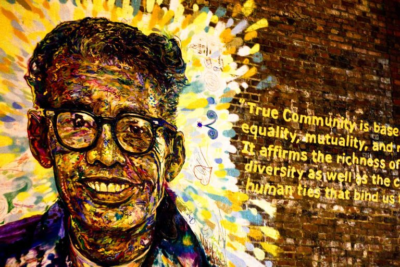 How Pauli Murray Masterminded Brown v. Board. By Tejai Beulah Howard / AAIHS
How Pauli Murray Masterminded Brown v. Board. By Tejai Beulah Howard / AAIHS
According to her autobiography, Song in a Weary Throat, Pauli Murray entered Howard University Law School in 1941 with the sole intention of ending Jim Crow. The Hunter College graduate spent much of the previous decade struggling to survive in Depression-era New York. She worked low-wage jobs in various Communist organizations before joining the federally funded, Works Progress Administration. As that project waned, Murray entered a period of deep vocational discernment during the fall of 1938. She opted for a primary career in law over creative writing after a series of life-changing events that transpired during an intense two-year period. Read more
 What My Students Don’t Know About Their Own History. By Arlene Davila / NYT
What My Students Don’t Know About Their Own History. By Arlene Davila / NYT
For the last 20 years, I have taught Latinx studies at New York University. My classes often provide my students, many of whom are seniors and Latinx themselves, with their first opportunity to examine their own identity and political histories.
Latinos, who make up 19 percent of the U.S. population, are vastly underrepresented in academia, newsrooms, publishing, Hollywood films, TV and more. If we’re serious about correcting this wrong, we can start with investing in Latinx studies programs, which remain siloed, underfunded and marginalized in most major universities. These courses are foundational to students’ ability to see themselves represented in all sectors of society. They also help educate and ensure that no publisher, museum director, news editor or head of any company can continue to dismiss this demographic out of ignorance. They teach all of us that Latinx history is American history. Read more
 “Till,” Reviewed: A Work of Mighty Cinematic Portraiture. By Richard Brody / The New Yorker
“Till,” Reviewed: A Work of Mighty Cinematic Portraiture. By Richard Brody / The New Yorker
In Chinonye Chukwu’s ardent film, the bonds of love have an inescapably political power.
In “Till,” the director Chinonye Chukwu dramatizes the life and death of Emmett Till, a Black fourteen-year-old from Chicago, who was lynched in a small Mississippi town, in 1955. The movie reveals the story’s many hidden, deep-rooted, and wide-ranging dimensions beneath the specifics of family tragedy and local crime. It shows how the scope of the crime expanded to the center of national news and politics, sparking outrage and galvanizing the civil-rights movement—namely, through the courageous determination of Emmett’s mother, Mamie Bradley (Danielle Deadwyler). Read more
 Black Music Sunday: Remembering when there were ‘Stax’ of soul musicians in Memphis. By Denise Oliver Velez / Daily Kos
Black Music Sunday: Remembering when there were ‘Stax’ of soul musicians in Memphis. By Denise Oliver Velez / Daily Kos
Carla Thomas, live at WattStax in 1972
Here at Black Music Sunday, we’ve been making our way through cities across the nation that had a major impact on the history of various Black music genres. This week brings us to Memphis, Tennessee. Memphis can lay claim to having nurtured multiple music genres, from blues to R&B—often referred to as “Memphis Soul”—to rock ‘n’ roll. It is also home to the Stax Museum of American Soul Music, and if you get to Memphis, you should visit—or at least browse their website. Read more
 Babyface on Whitney Houston, Toni Braxton, Girls Night Out. By Briana Younger / New York Magazine
Babyface on Whitney Houston, Toni Braxton, Girls Night Out. By Briana Younger / New York Magazine
When Babyface hops on a Zoom call in September, he’s just wrapping up New York Fashion Week. He’s attended shows by Tommy Hilfiger, Laquan Smith, and Puma and been photographed alongside celebrities, new and seasoned. This is the life he’s been living for the better part of five decades as one of the most preeminent and prolific song-crafters. The music he helped usher into the world — whether through his pen and production or via LaFace, the label he co-founded with L.A. Reid — has inspired multiple generations craving that ’90s R&B sound; all told, there are few catalogues that rival his. Read more
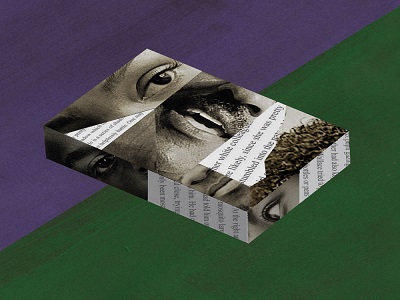 Can Black Literature Escape the Representation Trap? By Ismail Muhammad / NYT
Can Black Literature Escape the Representation Trap? By Ismail Muhammad / NYT
A crop of recent novels strains against the expectations of a publishing industry attempting to embrace diversity.
At base, the notion that representation matters is not new — especially not to the history of African American literature. In the West, Black people have functioned in white people’s imaginations as walking symbols — of difference, or of barbarism, inferiority, danger, inhumanity — rather than people. This extends to cultural productions, where the reality of a Black person’s life often takes a back seat to myriad stereotypes: the Tragic Mulatto, the Uncle Tom, the minstrel fool, the oversexed harlot and the caring mammy, to name only a few. Part of the work of the Black literary tradition has been to challenge these images; it has always carried the unique burden of representation: who gets it, who decides who gets it and what “it” even is. Read more
 Bruno Mars withdraws Silk Sonic from Grammy Awards consideration. By Variety and NBC news
Bruno Mars withdraws Silk Sonic from Grammy Awards consideration. By Variety and NBC news
Mars, a longtime Grammy favorite, may be responding to criticism the Recording Academy received in 2018, when his “24K Magic” album and related singles won all six categories it was nominated for — beating out entries from Jay-Z and Kendrick Lamar.
Bruno Mars has announced that Silk Sonic — the R&B duo consisting of himself and Anderson .Paak — have withdrawn their album “An Evening With Silk Sonic” from consideration for the 2023 Grammy Awards, he told Rolling Stone. “We truly put our all on this record, but Silk Sonic would like to gracefully, humbly and most importantly, sexually, bow out of submitting our album this year,” Mars said. “We hope we can celebrate with everyone on a great year of music and partake in the party. Thank you for letting Silk Sonic thrive.” Read more
Sports
 Black women object to National Women’s Soccer League’s treatment of their own. By Tamerra Giffin / Andscape
Black women object to National Women’s Soccer League’s treatment of their own. By Tamerra Giffin / Andscape
Fans and supporters challenge retaliation against Black players who complain about racism, sexism and emotional abuse by coaches
Last week, an investigation of the National Women’s Soccer League revealed systemic abuse that permeated the organization. The report is damning in its details, based in part on more than 100 interviews with current and former NWSL and U.S. Women’s National Team players who spoke of coaches hurling racist and sexist insults at players, punishing players who lodged complaints against them, and pursuing inappropriate relationships with players, sometimes coercing them into sex. In the week that followed, some of the NWSL leaders connected to the alleged crimes have been fired, stepped down, or forced out of their positions. Read more
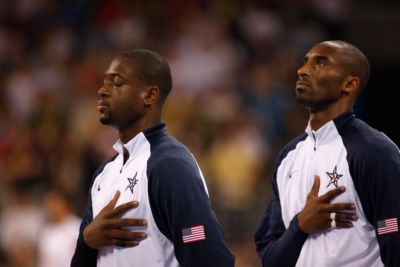 The Patriotic Propaganda of ‘The Redeem Team.’ By Jordan Calhoun / The Atlantic
The Patriotic Propaganda of ‘The Redeem Team.’ By Jordan Calhoun / The Atlantic
Under its surface, the Netflix documentary sells national duty and American exceptionalism—but I don’t want my sports to have a deeper meaning.
As much as I loved reliving the story, propaganda kept nudging its way in. The film shows Dwayne Wade saying things like, “We had a lot of things that we needed to show the world. And it wasn’t just basketball.” Coach K went further, saying, “How are we gonna win? What are we gonna win? What are we gonna establish? Is it to just qualify for the fucking Olympics? If that’s the only reason we’re here, that’s too shallow.” At one point, the Army is invited to speak to the team about the higher purpose of serving the country. In one scene, an Army colonel points to a soldier who lost both of his eyes in Iraq from shrapnel from an explosion. “And he’s still serving,” the colonel says. “That’s a hero.” Read more
Site Information
Articles appearing in the Digest are archived on our home page. And at the top of this page register your email to receive notification of new editions of Race Inquiry Digest.
Click here for earlier Digests. The site is searchable by name or topic. See “search” at the top of this page.
About Race Inquiry and Race Inquiry Digest. The Digest is published on Mondays and Thursdays.
Use the customized buttons below to share the Digest in an email, or post to your Facebook, Linkedin or Twitter accounts.